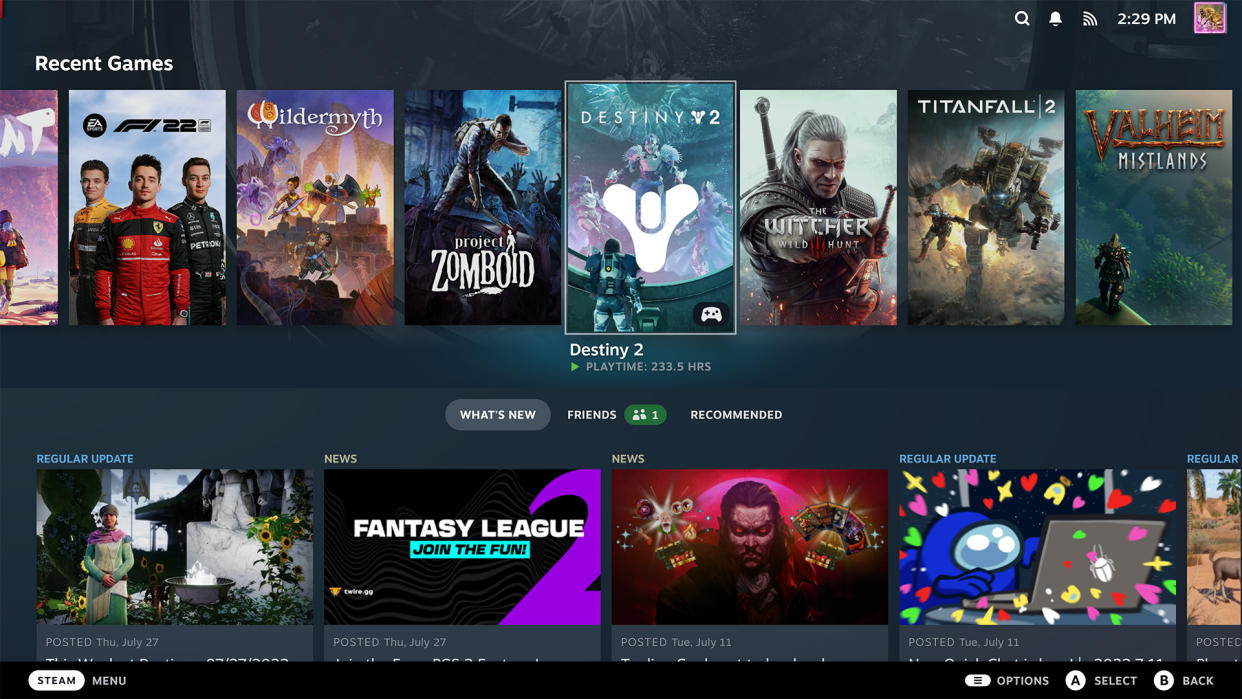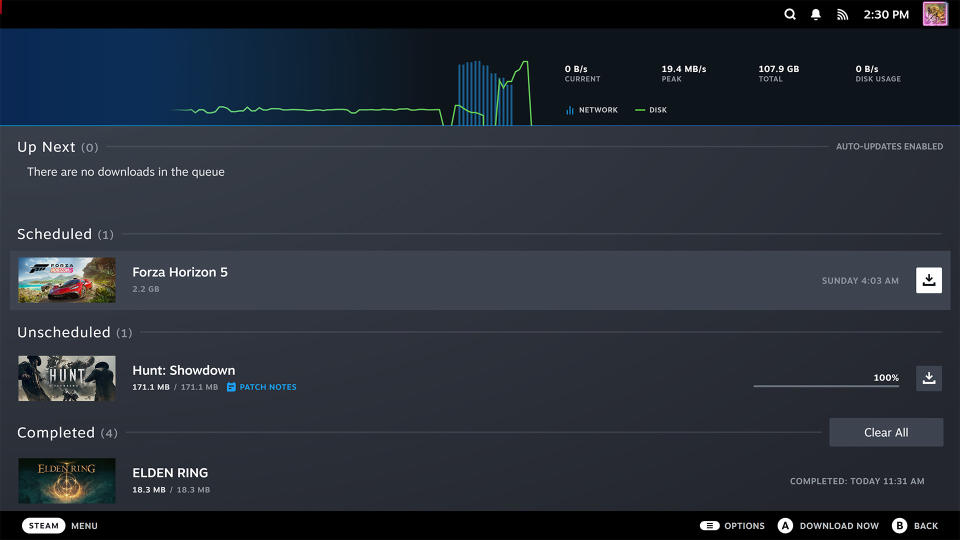Publishers thought they could take a bite out of Steam yet it's more dominant than ever

Jacob Ridley, getting steamy

This month I have been upgrading the Steam Deck: A new 2TB SSD, Hall effect thumbsticks, and a gorgeous translucent purple backplate make for a very pretty handheld machine.
Next month I hope to be setting up a brand new desk space: After years of working on a tiny Ikea desk I'm finally getting ready to set up a sit/stand setup with lots more room.
Who hasn't tried to take a bite out of Valve at this point? Ubisoft, Rockstar, EA, Epic, Microsoft, Blizzard, and Bethesda have all attempted to release game launchers or storefronts trying to keep your mouse cursor off the Steam logo and move money from Valve's pocket into their own.
Some have stuck around, for better or worse (looking at you, Ubisoft Connect), but most have decided that the fight's over. The landscape for launchers has changed, and they're not facing the same Steam app they once were.
The latest to drop the facade of obstinate rejection of Steam is Blizzard, which has decided to launch Overwatch 2 on Steam, citing a need to "break down the barriers" for gamers wanting to play. And this is Battle.net, an app you could make a good case for having a free pass to ignore Steam all it likes due to it being around for so long. Battle.net was introduced in 1996; there wasn't pressure on it to capitulate to Steam, it's just good for business.
Ubisoft has eased up on its Steam embargo in recent months, too, bringing more of its existing games back to Steam after years of hoping Epic and its own storefront would be a better fit. While Ubisoft can't quite let go of its launcher entirely, asking gamers to sit through a perfunctory Ubisoft Connect pop-up during launch, it's effectively desktop debris at this point.
EA has buckled, too. The publisher that once called Steam "restrictive" decided that it'd rather deal with the devil than have to convince everyone the Origin app was the done thing. It even migrated its subscription service, too. Bethesda killed its launcher and migrated players' games over to Steam in 2022.
As Tyler Wilde said back in 2022, "They really all came crawlin' back to Steam, didn't they?'
If Steam ever felt outdated or capable of being dislodged from its perch, it's unquestionably in a better place today.
Then there's Epic, which besides GOG, remains some of Steam's most successful competition. It's been around half a decade since Epic announced the Epic Games Store, its own marketplace for third-party games, and its aim still appears to be to offer developers a greater share of sales than Valve could cough up on Steam.
Epic continues to offer a better deal to developers to this day. Meanwhile Valve continues to catch flak for keeping its 70/30 revenue split for earnings under $10 million while offering its biggest successes, mostly large publishers, more favourable 75/25 and 80/20 splits.
Still, Steam persists, and Epic still has to try to score exclusives for its store through big cash deals.

The Epic Games Launcher isn't even as good at being the Epic Games Launcher as the Heroic Games Launcher. Epic's usability and recent lack of material updates haven't made it the desktop destination it had at one time the potential to be.
Though, through all of this, Steam has become a much more difficult application to mimic. A new look is most immediately obvious among those improvements, but clever networking features to share game files locally and a much improved Big Picture mode are genuinely useful tools for everyday gaming and are things not even attempted by its rivals. The latter makes Windows-powered handheld PCs genuinely playable. If Steam ever felt outdated or capable of being dislodged from its perch, it's unquestionably in a better place today.
Steam is an application that has a comforting familiarity to it, unlike some apps that appear destined to be bitten on the ass by the "exhausting rules of capitalism" and needlessly bulked out. It's also an app that is rightfully criticised for its large revenue demands for smaller developers, a side effect of its massive monopolistic potential. Point is: it's far from perfect, yet we can't really quit it. And it seems the days of genuine competition to Steam are mostly behind us.

